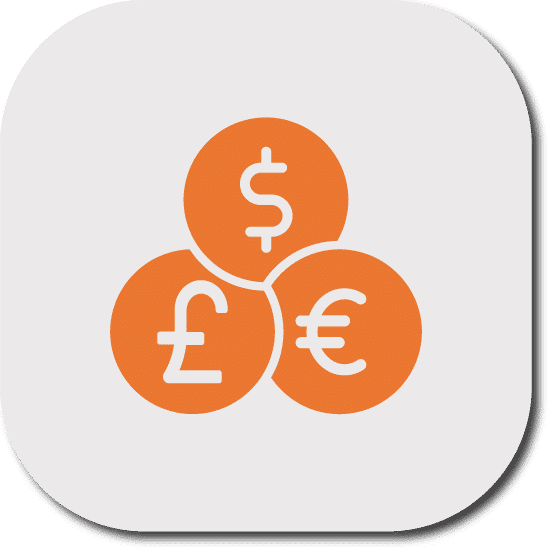Table of content
The United Republic of Tanzania is a country in East Africa, that borders the Democratic Republic of Congo, Mozambique, Rwanda, Uganda, Comoro Islands, Kenya, Malawi, Zambia, and Burundi. With a total territory of 947, 303 square kilometers, Tanzania is home to over 65 million people – which makes it one of the most populated countries in the world.
On top of being regarded as the birthplace of human civilization, Tanzania is the place where Africa’s highest mountain – Mount Kilimanjaro – is located. Moreover, Tanzania is one of the most linguistically diverse countries in the region, with over 100 languages currently spoken there. Although there is no official language in Tanzania, Swahili is regarded as being the de facto official one.
Tanzania is often referred to when it comes to its vibrant culture, picturesque locations, and history, however, what many seem to overlook is the fact that Tanzania has one of the fastest-developing economies in the region. A significant chunk of the Tanzanian national economy is occupied by the local agricultural sector, which makes up for 85% of the country’s exports. The main products exported from Tanzania are sugar, tobacco, coffee, rice, bananas, sweet potatoes, beans, maize cashew nuts, and cotton. Tanzania also exports gold and gemstones (diamonds and tanzanite), and the tourism industry makes up for 17.5 % of the total GDP. Nevertheless, the local economy still has a long way to go until it is fully developed and self-sustained, as one of its largest components – the agricultural industry – is currently under the threat of land irrigation and climate change.
As a direct result of the technological advancements, Forex trading in Tanzania is also growing in popularity. In this guide, we will take a closer look at Forex trading in Tanzania, regulation, as well as provide you with our top picks of the best brokers that offer their services in this country.
A full list of top Forex brokers in Tanzania
Finding a Forex and CFD (Contract for Difference) broker is one of the most time-consuming and energy-draining process. First, traders need to define what they are looking for. Swing and position traders prefer low commissions, while intraday traders prefer low spreads. In addition, traders need to take into account trading platforms, tradable assets, customer support, minimum deposits and many other features. What makes the selection process especially challenging is the huge number of brokers that need to be analyzed. To make this process easier for you, we have reviewed many different brokers globally and found the top brokers that serve traders from Tanzania.
Forex trading regulations in Tanzania
 Unfortunately, since Forex trading is still in its growth phase in Tanzania, the country is yet to find a way to regulate it properly. As of right now, the main regulatory body is the country’s central bank – The Bank of Tanzania.
Unfortunately, since Forex trading is still in its growth phase in Tanzania, the country is yet to find a way to regulate it properly. As of right now, the main regulatory body is the country’s central bank – The Bank of Tanzania.
Created in 1965, this regulator is responsible for overseeing the proper conduct and sustainable growth of the country’s financial sector. Moreover, under the Bank of Tanzania Act 2006, this entity is also directly responsible for the Tanzanian monetary policies.
It is no secret that the regulatory environment is imperative to the country’s success in the development of the local Forex market. What’s more, the failure to produce one may ultimately result in a rapid increase in the fraud schemes that are likely to discourage traders from getting into the FX market altogether.
Although Forex trading in Tanzania is not overly safe when choosing local brokers, residents of Tanzania can simply pick reputable, internationally regulated brokers.
 The national currency of Tanzania
The national currency of Tanzania
The national currency of Tanzania is the Tanzanian Shilling, or the TZS. As mentioned earlier, the issue of this currency and the relevant monetary policies are overseen by the country’s central bank. Moreover, the USD is also widely accepted in this country.
The Tanzanian Shilling is not a popular currency among traders from other parts of the world. If one does choose to trade it, then it is most commonly found in a pair with the USD. However, this currency is considered exotic, and it is recommended to be avoided by amateur traders.
Popular payment methods in Tanzania
A trader will find a variety of payment methods to choose from in this country. Card payments of Visa and MasterCard are very popular, and wire transfers are also widely accepted. Moreover, the usage of eWallets in Tanzania is increasing, and the local brokers also begin to accept deposits and withdrawals proceeded via them. Mobile payments are becoming more and more popular day by the day, and Tanzania is no exception.
In addition, some of the best Forex platforms in Tanzania accept payments made via Western Union, Money Gram, and other similar digital payment systems. Before signing up with a brokerage, you should always do your duly research and choose the broker that accepts the payment method that you are most comfortable with.
Popular trading platforms in Tanzania

Many of the Forex brokers worldwide choose to develop their own trading software, while others provide access to third party platforms. The majority of Forex trading brokers in Tanzania choose to operate on the popular and reliable software, such as cTrader, or MetaTrader4 (MT4) and MetaTrader5 (MT5). The latter was originally developed by the Russian company called MetaQuotes. MT4 in mainly used in Forex and was released in 2005, while ctrader and MT5 were released in 2010, and they both have many differences. cTrader has a user-friendly interface and brokers offer mainly Forex on this platform, while MT5 is a multi-asset software.
The main benefits of trading Forex in Tanzania
Before making the final decision of whether to join the Tanzanian Forex trading or not, let us give you a short breakdown of the main advantages and disadvantages of doing so, to help you make an educated decision.
Pros:
- The economy is one of the strongest and fastest developing in the region, which means that the local Forex market has a big potential of growing in size in the near future
- Due to the lack of regulation, you can trade with very high leverages and will be able to access bonuses and promotions to kick-start your trading sessions
- Residents of Tanzania can create an additional source of income for themselves
Cons:
- Due to the lack of proper regulation in place, it is not very safe to trade Forex in Tanzania, however, the citizens of the country can find international brokers that offer great trading conditions and are regulated
- The main sectors that the national economy relies on are currently under the threat of being demolished, which leaves the future of the Tanzanian economy in a state of uncertainty
Summary
Overall, Tanzanian Forex market is regulated by the central bank of the country. However, the regulator is not highly experience and there are very few local brokers that are licensed. On the upside, residents of Tanzania can open live accounts with international brokers, such as XM, AvaTrade, and others.
FAQs on the best Forex and CFD brokers in Tanzania
Is it legal to trade Forex in Tanzania?
Is Tanzanian Shilling available in Forex trading?



